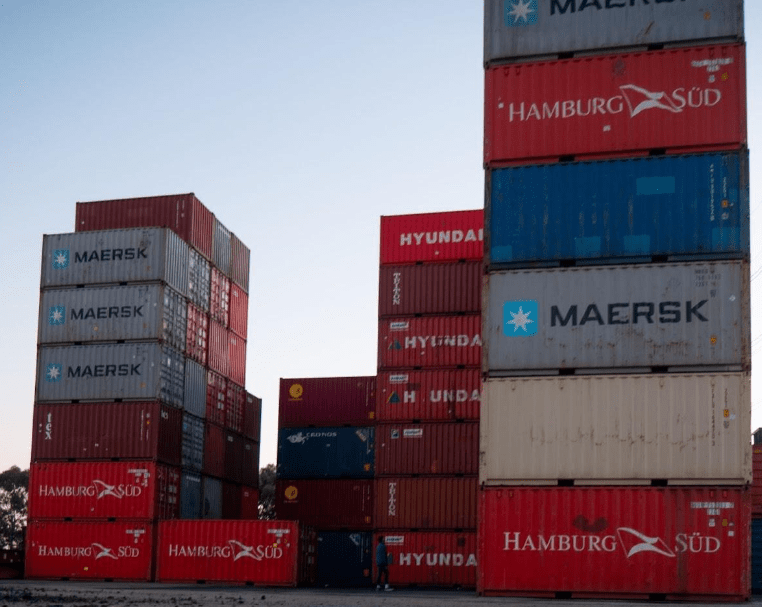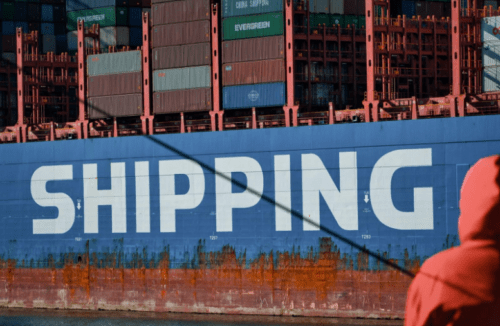Bulk Cargo: Definition, Containers, and Handling

Bulk cargo poses unique handling and transportation challenges, due to its volume and weight. Effective bulk cargo handling requires a comprehensive understanding of the specific materials in transit and the appropriate storage, handling, and transportation methods to ensure safety and efficiency throughout the transaction.
Container handling systems quickly and efficiently unload, load, and handle bulk cargo from various origins to various destinations. These systems are often utilized at seaports, inland container terminals, and extensive overland networks such as railways.
Here is a comprehensive overview of bulk cargo and bulk shipping, including its definition, the types of containers used for transportation of a bulk shipment, and the various methods of handling and loading these materials. We will also explore bulk ship meaning and cargo meaning.
What Is Bulk Cargo?
Bulk cargo refers to unpackaged goods moved in large quantities and transported in vessels specifically designed for this purpose, such as bulk carriers or dry bulk ships. Examples of bulk cargoes include grains, coal, iron ore, cement, and fertilizers.
Liquid and dry goods are different types of bulk cargo, each with unique characteristics and handling requirements. Dry bulk cargo refers to tangible goods shipped in raw, unprocessed form, such as grains, minerals, and ore. Solid bulk cargo is typically transported in large, specialized bulk carrier ships and is stored in large load holds.
The storage and handling of solid bulk cargo are relatively straightforward processes. The load is stored in its natural state without special packaging. On the other hand, liquid bulk cargo refers to goods transported in liquid forms, such as oil, chemicals, and liquefied gasses.
Liquid bulk cargo is usually stored in specialized tanks and transported in specialized ships known as tankers. The handling and storage of liquid bulk cargo are more complex than that of dry bulk goods because the liquids need to be stored and transported in controlled conditions to prevent spills, leaks, and other types of environmental contamination.
Both dry and liquid cargo present various risks during transportation. One of the main risk factors for dry cargo is physical damage or loss. This risk can occur due to improper handling, stacking, or securing of the load during loading and unloading operations, resulting in loss or damage to goods. Another risk factor is theft, as dry cargo can be vulnerable to hijacking during transit.
For liquid cargo, one of the significant risk factors is spillage or leakage. Leakage can result from structural damage to the tanker or pipeline or human error during loading, unloading, or transit operations. It can have severe environmental impacts and also result in financial losses to those responsible for shipping or storing the product. Another risk factor is cargo contamination, which renders the cargo unusable or hazardous.
Types of Bulk Cargo

Here are the various types of bulk cargo.
Break Bulk
Break bulk cargo refers to goods shipped individually instead of packaged in containers or as bulk cargo. These cargo types require handling and special equipment to load and unload. Break bulk cargo includes machinery, steel, pipes, and lumber.
Neo Bulk
Neo bulk refers to a type of bulk cargo shipped in large quantities, such as grains, minerals, ores, and other raw materials. These materials get transported in bulk carrier ships designed to carry large volumes of cargo in a single voyage.
Containerized
Bulk cargo can be transported in specific containers or flexible intermediate bulk containers (FIBCs). These containers carry loose, granular, or powdered materials such as grains, ores, chemicals, and construction materials.
What Industries Use Bulk Cargo Shipping?
Several industrial sectors, including chemical engineering, rely on bulk cargo shipping to transport goods globally.
The mining industry is another significant user of bulk cargo shipping because it requires transporting large quantities of minerals and ores such as iron, coal, and bauxite. These raw materials must be transported from the mine site to processing facilities and ports for export.
The farming industry also heavily relies on bulk cargo shipping for livestock feed and crops such as wheat, corn, and soybeans. These crops are transported from the farm to processing facilities and ports for export to other countries.
The energy industry, particularly the oil and gas sector, uses bulk cargo shipping to transport crude oil and natural gas from production sites to refineries and ports for export. The transportation of these products from energy plants often requires specialized vessels and infrastructure to handle the large quantities and weight of the goods.
How to Handle Bulk Cargo Shipments
Handling large shipments involves a series of steps to ensure that these goods are transported safely and efficiently. First, you must correctly identify and classify the type of bulk cargo that is in transit. This information helps shippers identify necessary handling equipment, storage requirements, and potential hazards.
Second, you must develop a proper plan for loading and unloading. It involves selecting appropriate loading methods, determining the order in which the cargo should be loaded, and ensuring the vessel’s stability during transport.
Next, proper documentation must be in place, including bills of lading, weight certificates, and safety declarations. These documents are necessary to comply with regulations and ensure a smooth customs clearance process.
The selection of the correct type of bulk cargo ship is also critical. The vessel must be appropriately sized and equipped for the kind of cargo that it will transport.
Finally, effective communication and coordination between all parties involved in the shipment, including the shipper, carrier, port authorities, and cargo handlers, is essential to ensure a safe and successful bulk cargo shipment. It includes pre-shipment planning, real-time monitoring during transit, and timely reporting of any issues or incidents.
Factors That Affect Bulk Cargo Shipping Costs

Let’s look at the factors that affect bulk cargo shipping costs.
Shipment Weight and Size
Weight and size refer to the actual physical weight and size of a bulk cargo shipment, whereas dimensional weight refers to a theoretical weight calculated based on the size of the shipment. Carriers use the dimensional weight to determine the amount of space a commodity cargo will occupy in a truck and, therefore, the shipment cost.
Dimensional weight is often higher than the actual weight, resulting in higher shipping costs for bulky, low-weight items. Additionally, shipping routes and ports that accommodate larger and heavier shipments may be limited, potentially increasing shipping costs.
Freight Class
Freight class is a standard classification system that shipping providers use to determine the transportation cost for bulk cargo shipping. The classification is based on several factors, such as density, value, and handling requirements. A lower freight class means the item is dense, has a low value, and is easily stackable, making it cheaper to transport.
On the other hand, a higher freight class indicates the item is less dense, has a higher value, and is less stackable, making it more expensive to transport.
Distance to Travel
Travel distance is a significant factor in determining the cost of bulk cargo shipping. The farther the distance, the higher the price, as fuel and transportation expenses increase with the distance traveled.
Final Thoughts
Proper bulk cargo handling is essential for protecting the load and the transporting vessel. The handling of bulk cargo requires specialized containers and equipment to ensure safe and efficient loading and unloading. Effective management of bulk cargo transportation is a critical aspect of the global supply chain.
